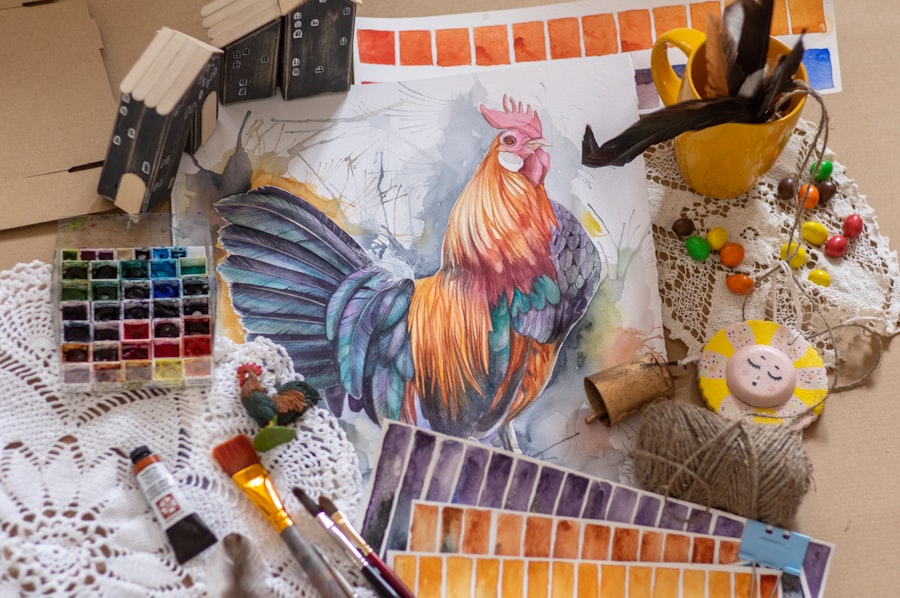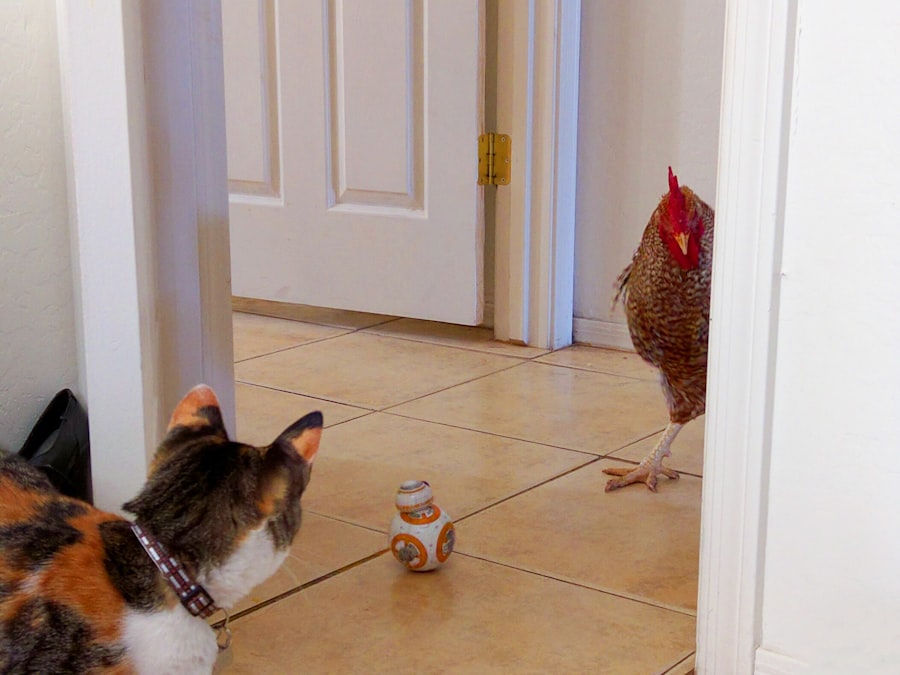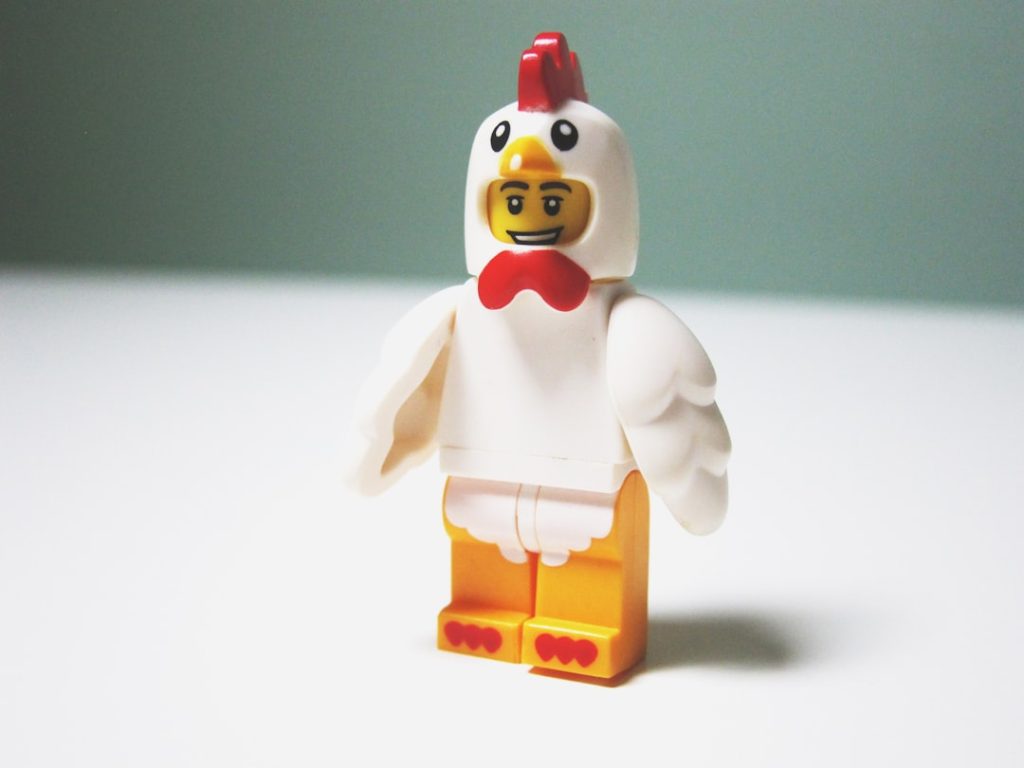Raising baby chickens requires attention to their physical and mental well-being. Providing enrichment activities is essential for their development and overall health. Keeping baby chickens entertained helps prevent negative behaviors such as pecking or feather picking, reduces stress and anxiety, and promotes the growth of healthy adult chickens.
Baby chickens are naturally curious and active. In their natural habitat, they would spend time foraging, exploring, and interacting with other chickens. When raised in captivity without proper stimulation, they may become bored and frustrated, leading to behavioral and health issues.
Offering enrichment activities mimics their natural behaviors and ensures a fulfilling upbringing. Providing appropriate entertainment for baby chickens not only benefits the birds themselves but also contributes to the success of poultry farming. By creating an environment that encourages natural behaviors and promotes mental and physical stimulation, farmers can raise healthier, happier chickens and maintain a more harmonious flock.
Table of Contents
- 1 Providing Enrichment Activities for Baby Chickens
- 2 Creating a Safe and Stimulating Environment for Baby Chickens
- 3 Toys and Games for Baby Chickens
- 4 Socialization and Interaction for Baby Chickens
- 5 Outdoor Exploration for Baby Chickens
- 6 Monitoring and Adapting Enrichment Strategies for Baby Chickens
- 7 FAQs
- 7.1 What are some ways to keep baby chickens entertained?
- 7.2 Why is it important to keep baby chickens entertained?
- 7.3 What are some DIY toys for baby chickens?
- 7.4 How much space do baby chickens need to stay entertained?
- 7.5 Are there any risks to consider when keeping baby chickens entertained?
Key Takeaways
- Keeping baby chickens entertained is important for their physical and mental well-being
- Enrichment activities such as providing perches and hanging treats can keep baby chickens engaged
- Creating a safe and stimulating environment includes providing proper bedding and temperature control
- Toys and games like mirrors and hanging vegetables can provide entertainment for baby chickens
- Socialization and interaction with other chickens and humans is crucial for the development of baby chickens
- Outdoor exploration allows baby chickens to engage in natural behaviors like scratching and pecking
- Monitoring and adapting enrichment strategies is essential to ensure the ongoing well-being of baby chickens
Providing Enrichment Activities for Baby Chickens
Toy-Based Enrichment
One of the simplest ways to provide enrichment for baby chickens is by offering them a variety of safe and stimulating toys and objects to interact with. This can include items such as hanging mirrors, perches, and even simple objects like balls or pecking blocks.
Encouraging Natural Behaviors
These items can encourage natural behaviors such as pecking, scratching, and jumping, which are essential for the physical and mental development of baby chickens.
Foraging and Exploring
Another important aspect of providing enrichment for baby chickens is to offer them opportunities for foraging and exploring their environment. Scatter feeding is a great way to encourage natural foraging behaviors in baby chickens, as it allows them to search for food just like they would in the wild. Additionally, providing access to outdoor areas where they can scratch and peck at the ground can also provide valuable enrichment for baby chickens. This not only keeps them physically active, but also allows them to engage in natural behaviors that are essential for their well-being.
Creating a Safe and Stimulating Environment for Baby Chickens

Creating a safe and stimulating environment for baby chickens is essential for their overall well-being. When designing the living space for baby chickens, it’s important to consider their natural behaviors and instincts. Providing a spacious and well-ventilated coop or brooder is crucial to ensure that baby chickens have enough room to move around and engage in natural behaviors.
Additionally, it’s important to provide a clean and comfortable bedding material, such as straw or wood shavings, to create a cozy environment for the baby chickens. In addition to physical space, it’s also important to consider the lighting and temperature of the environment. Baby chickens require access to natural light to regulate their circadian rhythms and promote healthy growth.
Providing access to natural light or using artificial lighting can help to ensure that baby chickens have a consistent day-night cycle. Furthermore, maintaining an appropriate temperature is crucial for the health and well-being of baby chickens. Ensuring that the brooder or coop is kept at the right temperature will help to prevent stress and promote healthy development.
Toys and Games for Baby Chickens
Toys and games can be a great way to keep baby chickens entertained and stimulated. There are a variety of toys specifically designed for chickens, such as hanging mirrors, pecking blocks, and puzzle feeders, which can provide valuable enrichment for baby chickens. These toys encourage natural behaviors such as pecking, scratching, and jumping, which are essential for the physical and mental development of baby chickens.
In addition to specific chicken toys, there are also everyday objects that can be repurposed as enrichment items for baby chickens. For example, hanging a small ball or a bunch of leaves in the coop can provide entertainment and stimulation for the baby chickens. Similarly, providing perches or platforms at different heights can encourage the baby chickens to jump and explore their environment.
By offering a variety of toys and games, you can keep the baby chickens engaged and prevent boredom, which can lead to negative behaviors.
Socialization and interaction are important aspects of keeping baby chickens entertained and happy. Baby chickens are naturally social animals and thrive on interaction with their flock mates as well as with humans. Providing opportunities for socialization can help to prevent loneliness and boredom in baby chickens, leading to a more harmonious flock.
One way to promote socialization among baby chickens is by providing them with opportunities to interact with each other in a safe and supervised environment. Allowing them to engage in natural behaviors such as pecking, scratching, and dust bathing together can help to strengthen their social bonds and reduce stress. Additionally, spending time with the baby chickens and gently handling them can help to build trust and familiarity, leading to more confident and sociable adult chickens.
Outdoor Exploration for Baby Chickens

Why Outdoor Exploration Matters
Outdoor exploration is a crucial aspect of keeping baby chickens entertained and stimulated. By allowing them access to outdoor areas, they can engage in natural behaviors like scratching, pecking at the ground, and exploring their surroundings, providing valuable enrichment for their overall well-being.
Creating a Safe Outdoor Environment
When providing outdoor access for baby chickens, it’s essential to ensure the area is safe and secure from predators. Using chicken wire or netting can help create a protected outdoor space where the baby chickens can roam freely without the risk of harm.
Providing Enriching Activities
In addition to providing a safe outdoor space, offering access to grassy areas or dirt patches where they can scratch and dust bathe can offer valuable enrichment for the baby chickens. This allows them to engage in natural behaviors that are essential for their physical and mental well-being.
Monitoring and Adapting Enrichment Strategies for Baby Chickens
Monitoring the effectiveness of enrichment strategies is crucial for ensuring the well-being of baby chickens. It’s important to observe the behavior of the baby chickens regularly to assess whether they are engaged and stimulated by the enrichment activities provided. If you notice signs of boredom or stress, it may be necessary to adapt or introduce new enrichment strategies to keep the baby chickens entertained.
Adapting enrichment strategies can involve introducing new toys or objects, changing the layout of the living space, or providing different types of enrichment activities. By being attentive to the needs of the baby chickens and making adjustments as necessary, you can ensure that they have a fulfilling and enjoyable upbringing. Additionally, seeking advice from experienced poultry farmers or animal behavior specialists can provide valuable insights into effective enrichment strategies for baby chickens.
In conclusion, keeping baby chickens entertained is essential for their overall well-being and happiness. By understanding their natural behaviors and instincts, providing a safe and stimulating environment, offering a variety of toys and games, promoting socialization and interaction, allowing outdoor exploration, and monitoring and adapting enrichment strategies, you can ensure that your baby chickens have a fulfilling upbringing. Ultimately, by prioritizing their enrichment needs, you can contribute to the health and success of your flock while fostering happy and content adult chickens.
If you’re looking for more tips on caring for young poultry, check out this article on how to care for goslings. It provides valuable information on raising and nurturing young geese, which can be helpful for those who are also raising baby chickens. Learning about the care of different types of poultry can provide insight into keeping baby chickens entertained and healthy.
FAQs
What are some ways to keep baby chickens entertained?
Some ways to keep baby chickens entertained include providing them with toys such as hanging mirrors or shiny objects, setting up a dust bath area, and providing them with perches and ramps to climb on.
Why is it important to keep baby chickens entertained?
Keeping baby chickens entertained is important for their physical and mental well-being. It helps prevent boredom and stress, and encourages natural behaviors such as foraging and exploring.
What are some DIY toys for baby chickens?
DIY toys for baby chickens can include hanging a cabbage or lettuce for them to peck at, creating a simple obstacle course with cardboard boxes, or providing them with a shallow pan of water for splashing and playing.
How much space do baby chickens need to stay entertained?
Baby chickens need enough space to move around and explore. A general rule of thumb is to provide at least 1 square foot of space per chick in the brooder or coop.
Are there any risks to consider when keeping baby chickens entertained?
When keeping baby chickens entertained, it’s important to consider potential risks such as choking hazards from small objects, or toxic materials that they may ingest. Always supervise their playtime and ensure their environment is safe.
Meet Walter, the feathered-friend fanatic of Florida! Nestled in the sunshine state, Walter struts through life with his feathered companions, clucking his way to happiness. With a coop that’s fancier than a five-star hotel, he’s the Don Juan of the chicken world. When he’s not teaching his hens to do the cha-cha, you’ll find him in a heated debate with his prized rooster, Sir Clucks-a-Lot. Walter’s poultry passion is no yolk; he’s the sunny-side-up guy you never knew you needed in your flock of friends!







